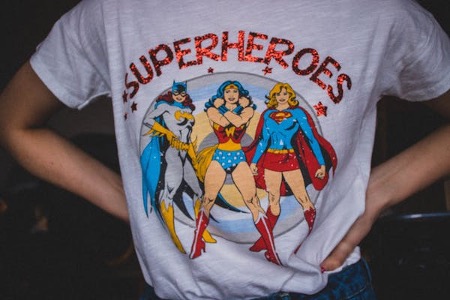We’ve all been there – that sinking feeling when opening a box of freshly delivered custom t-shirts only to discover the colors look nothing like what you approved, the print feels rough against your skin, or worse, the shirts arrive a day after your big event. These disappointments happen all too often when businesses prioritize cost over quality. Hence, hiring someone responsible is the best way to do things. Make sure to get your desired services when it comes to t-shirt printing from a qualified place so that you receive exactly what you wanted.
The growing trend toward local t-shirt printing addresses these common frustrations head-on. Small business owners, event planners, and marketing teams across the country are discovering that working face-to-face with printing professionals in their community creates dramatically better outcomes than clicking “order” on a faceless website and hoping for the best.
The Unseen Damage of Bargain-Hunting
Jake, a small business owner in Portland, learned this lesson hard. “I needed shirts for a product launch and went with the cheapest online option,” he recalls. The shirts looked terrible and felt worse, and my team was embarrassed to wear them. That mistake cost me way more than the few dollars I ‘saved’ upfront.”
Jake’s experience isn’t unusual. The actual expenses of cheap printing extend far beyond the initial invoice:
Reputation Damage: When recipients receive scratchy, ill-fitting shirts with designs that crack after one wash, they don’t blame the unknown printer—they associate that poor quality with YOUR brand.
The Real Cost of “Re-dos”: When an order goes wrong, the time spent on corrections, customer service calls, and arranging returns destroys any savings from choosing the cheaper option.
Event Disasters: Nothing’s worse than planning a perfect launch party, charity run, or corporate gathering only to have merchandise arrive late, incorrect, or unusably flawed.
Staff Morale: Team members notice when their employer cuts corners on branded gear. The message sent by scratchy, poorly-made uniforms undermines company culture more than most managers realize.
The Face-to-Face Quality Difference
Sarah, who coordinates annual fundraising runs for a Chicago-based nonprofit, switched to local printing three years ago. “The difference was night and day,” she explains. “Our printer suggested a different fabric blend for runners instead of the stiff cotton we’d used. Our participants now ask specifically about getting one of our shirts.”
This personalized approach creates tangible advantages that online ordering cannot match:
Touch-and-Feel Confidence: There’s no substitute for physically handling shirt samples before placing an order. Local printers maintain libraries of options you can see and feel.
Color-Matching Magic: Professional printers can match brand colors precisely, often tweaking formulations on-site to reproduce logos and designs perfectly.
Technique Selection: Screen printing, DTG, sublimation, and heat transfer each have distinct advantages for different designs and fabrics. Local experts recommend the right approach for specific projects rather than forcing everything through the same process.
Problem Prevention: In-person consultations catch potential issues before they become expensive mistakes. Subtle adjustments to artwork, color choices, or placement can dramatically improve the final product.
The Sustainability Advantage
Environmental concerns increasingly influence purchasing decisions for both consumers and businesses. Local printing typically offers significant sustainability benefits:
Reduced Carbon Footprint: Eliminating cross-country or international shipping dramatically reduces the environmental impact of each order.
Eco-Conscious Options: Many local printers now offer organic cotton shirts, water-based inks, and other environmentally responsible alternatives that may not be available through mass-market suppliers.
Less Packaging Waste: Direct delivery means less need for excessive protective packaging that ultimately ends up in landfills.
Longer Product Lifespan: Higher-quality shirts that maintain their appearance through multiple washings stay in use longer, reducing the overall environmental impact compared to cheap shirts that quickly become unwearable.
Featured Image Source : https://images.pexels.com/photos/701771/pexels-photo-701771.jpeg?auto=compress&cs=tinysrgb&w=600

Leave a Reply